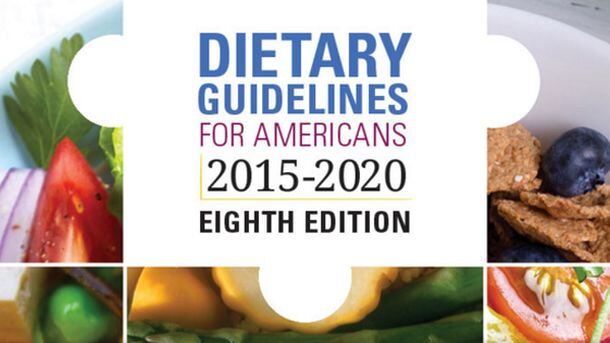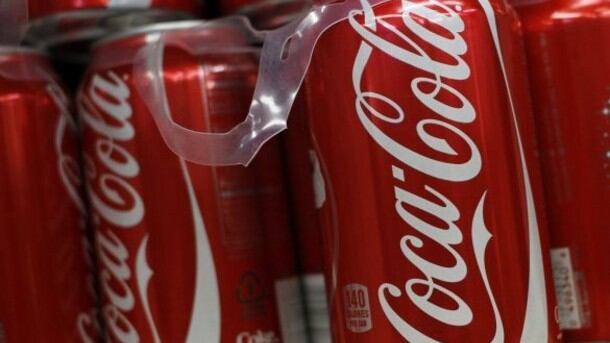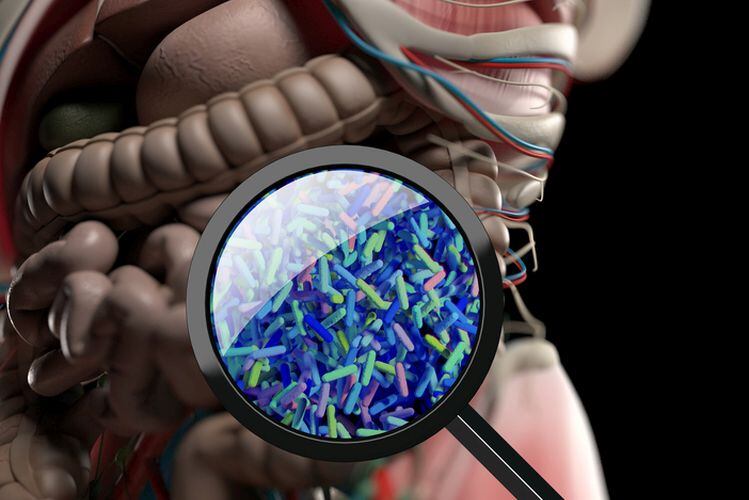Plaintiffs in some high-profile lawsuits vs diet soda giants Coca Cola, PepsiCo and Dr Pepper cited a 2014 study by Suez et al indicating that artificial sweeteners may induce glucose intolerance by altering the gut microbiota, and a 2017 study by Huang et al arguing that artificial sweetener use has increased the risk of type two diabetes.
However, the American Heart Association, the American Diabetes Association and the Academy of Nutrition and Dietetics all support the judicious use of non nutritive sweeteners, while a recent scientific review (Lobach et al, 2018) published in Food and Chemical Toxicology part funded by The Calorie Control Council* found no clear evidence of any adverse effect of low or no calorie sweeteners (LNCS) on the gut microbiota at doses relevant to human use.
So is more research needed, particularly when it comes to our gut bacteria?
FoodNavigator-USA (FNU) caught up with Beth Ruge (BR)** director of healthcare professional marketing, nutrition science and professional affairs at Heartland Food Products Group (which owns the Splenda brand of the artificial sweetener sucralose) to probe the review in more detail.
FNU: The Lobach review highlighted many design flaws in studies that have looked at high intensity sweeteners and gut bacteria. If money were no object, what would a well-designed human clinical study look like?
BR: Before addressing what a well-designed human clinical study would look like, it makes more sense to start with a well-designed animal study. With a laboratory animal study, diet can be well-controlled to help reduce the problem of unequal diets and dietary habits between different people. It is well-known that the foods we eat every day can affect the type and number of gut bacteria, which makeup the gut microbiome. What we know very little about is exactly how much and how often these types of changes occur.
A well-controlled animal study could help scientists better understand what is the ‘normal’ variability of changes in the gut microbiota. For example, researchers could investigate what occurs when the diet is supplemented with certain macronutrients, micronutrients or even types of foods, like fruit, bread, or nuts. After more is known about what is the range of normal responses, studies could be done to see what happens when a low-calorie sweetener (LCS) is added to the diet.
Having a very clear understanding of the normal variability of changes is critical to really understanding the meaningfulness of microbiome study results. It’s important to know that the field of microbiome research is basically in its infancy. For example, right now, there are no changes in the gut microbiota that are known to be reliable biomarkers for things like cardiovascular health or diabetes. In contrast, what we do know is that the research shows no adverse health effects of LCSs, with even the highest predicted intakes by people.
FNU: Can you provide some context about the significance of changes in gut bacteria? Let’s say a well-designed study did show LCNS caused changes to the composition of gut bacteria: What changes are meaningful? If certain kinds of bacteria were to increase, would that be problematic, which ones, and why?
BR: Gut health – specifically – the health of the gut microbiota, has gained a lot of attention recently due to emerging research suggesting changes in its composition and/or activity are associated with impacts to a person’s health. However, most types of changes that are known to occur to the gut microbiome are not yet well-understood for their meaningfulness to health. For example, there are no types of microbiota changes that have been proven to be causal in gaining weight. Importantly, in the case of LCSs, a large body of research [click HERE, HERE, and HERE] shows that these do not cause weight gain or adversely affect gut function or health.
The gut microbiome profile is changing all the time in response to what we eat. We know that it is an important part of how the body processes food. However, we have only a rudimentary understanding of all the different types of roles that are played by the vast number of types of gut microbacteria that exist in the gut microbiome. Even with this in mind, there is no credible evidence or general trends for LCSs to adversely affect human health through an effect on the gut microbiome.
FNU: In lawsuits filed in early 2018 vs the big soda companies, the plaintiffs cited studies they claimed showed “an association between artificially-sweetened beverage consumption and weight gain in children.” Is there a plausible mechanism by which LCNS might prompt weight gain?
BR: We cannot speak to any events related to these companies. However, the totality of evidence shows very clearly that LCSs cannot, and do not, result in overeating, increased preference for sweet foods, weight gain or obesity. In fact, every hypothesis for how a LCS might cause weight gain has actually not come to fruition when tested in higher-quality, stronger studies capable of determining a cause and effect relationship.
The newest hypothesis of an effect on weight through the gut microbiome also is refuted by the totality of the evidence. The comprehensive review from Lobach et al. (2018) for example, found that there is no credible evidence or general trends for LCSs to adversely affect human health through an effect on the gut microbiome, whether considering LCSs as a class or on an individual basis.
Indeed, the overall data from human studies, including randomized clinical trials, shows that LCSs can be an effective tool in reducing energy intake, lowering excess body weight and improving diet quality when used to replace sugar in the diet.
FNU: People consuming the highest intakes of diet soda are more likely to be overweight or obese. Is this concerning, or does it just show that people with a weight problem are more likely to reach for zero calorie beverages because they are trying to keep calories under control?
BR: While we are not experts in soda studies, we know that certain studies, called observational studies, have shown these associations you mentioned. Risk assessment experts, however, agree that these results could easily be a result of, as you put it, people with a weight problem reaching for a diet drink rather than reaching for the diet drink causing the weight problem.
It’s also important to know that observational studies, by their nature, cannot prove cause and effect. They can only show associations. In contrast, randomized clinical trials, which directly assess possible effects, show that using beverages sweetened with a LCS instead of sugar can help in nutritional strategies to lower excess body weight.
FNU: According to the scientific report of the 2015 Dietary Guidelines Advisory Committee, “Since the long-term effects of low-calorie sweeteners are still uncertain, those sweeteners should not be recommended for use as a primary replacement/substitute for added sugars in foods and beverages.” What do you make of this advice?
BR: In contrast to this report, renowned experts in food safety and risk assessment have globally confirmed that LCSs are safe. LCSs are amongst the most thoroughly researched ingredients worldwide. Their safety, including the safety of sucralose, has been comprehensively evaluated and consistently confirmed by a strong body of scientific evidence.
Study design is important to consider in helping us make decisions about the strength of evidence behind LCSs and health effects. The result of observational studies - which only show that an association exists, are prone to various types of bias and cannot support a causal relationship – yet, they have influenced conclusions from this report. However, it is only when there is strong evidence of no safety concern as a food additive, including LCSs, are these items permitted for use in foods.
FNU: Can you share any data or insights on consumer perceptions of high intensity sweeteners and what the hierarchy is? Eg. Do they see some as better than others?
BR: We know from the International Food Information Council 2018 Food & Health Survey that 6 in 10 consumers view added sugars negatively. At a time when rates of obesity and related diseases are increasing worldwide, public health authorities recommend consumers reduce overall free sugars in the diet due to their associated negative health effects.
This is also true of food manufacturers as part of their food and drink reformulation goals. Replacing foods and drinks sweetened with sugars with those containing LCSs offers a useful nutritional strategy for helping people manage their weight and control blood sugar as they reduce the calorie and free sugar content of foods and drinks.
LCSs maintain a sweet taste and can be an effective way to help consumers stay on track with their health goals and curb sugar cravings. Consumers of LCSs have also been found to display a better diet quality, control of carbohydrates, energy intake, total/added sugars and healthier diet behaviors, without impacting blood sugar or weight.
*The Lobach review was conducted by Alexandra Lobach and Ashley Roberts at scientific and regulatory consultancy Intertek, and by Professor Ian Rowland, head of the Hugh Sinclair Unit of Human Nutrition at the University of Reading, UK.
Conflicts of interest: Intertek received financial support from the Calorie Control Council to assist in the preparation of the manuscript. The Calorie Control Council did not contribute to the origination, planning, implementation, or interpretation of this work. The Calorie Control Council did review the content of the complete manuscript; however, Ashley Roberts maintained responsibility for the final content. Ian Rowland has no conflicts of interest.
**V. Lee Grotz, PhD, medical and safety science advisor to the Heartland Food Products Group Board, reviewed Beth Ruge’s responses to FoodNavigator-USA.
Sucralose under fire in Germany: The German Federal Institute for Risk Assessment (BfR) has raised concerns over the stability of sucralose when heated to high temperatures, and the potential for resulting health risks.
Read more in our European edition HERE.

According to the scientific report of the 2015 Dietary Guidelines Advisory Committee, “When low-calorie sweeteners are used to replace sugar, the resulting reduction in calories can help to achieve short-term weight loss."
But it added: "However, there is insufficient evidence (due to a paucity of data) to recommend the use of low-calorie sweeteners as a strategy for long-term weight loss and weight maintenance.
“Since the long-term effects of low-calorie sweeteners are still uncertain, those sweeteners should not be recommended for use as a primary replacement/substitute for added sugars in foods and beverages.”
This advice was not featured in the final published guidelines, however.

Plaintiffs in some recent high-profile lawsuits vs diet soda giants Coke, Pepsi and Dr Pepper cite multiple studies including a 2010 review by Brown et al indicating that “data from large, epidemiologic studies support the existence of an association between artificially-sweetened beverage consumption and weight gain in children.”
They also cite claims from Purdue University researcher Susan Swithers arguing that “frequent consumption of high-intensity sweeteners may have the counterintuitive effect of inducing metabolic derangements” and a 2008 study by Fowler et al alleging that “artificial sweetener use might be fueling--rather than fighting--our escalating obesity epidemic,” and noting that people who consumed the highest intakes of diet soda were more likely to be overweight or obese.
(Critics of the research say that this simply shows a correlation – most likely that people with a weight problem are more likely to reach for zero calorie beverages - not that the beverages cause their weight problems.)
Plaintiffs also cite a 2014 study by Suez et al indicating that artificial sweeteners may induce glucose intolerance by altering the gut microbiota and a 2017 study by Huang et al arguing that artificial sweetener use has increased the risk of type two diabetes.
The International Sweeteners Association, however, noted in 2017 that "there is not a single published randomized controlled trial, the gold standard in nutrition research, that has shown that low calorie sweeteners use can lead to weight gain or any negative health effect."
A systematic review of animal and human studies published in the International Journal of Obesity in 2016 (click HERE) by Rogers et al, in turn, concluded that, "Overall, the balance of evidence indicates that use of low energy sweeteners in place of sugar, in children and adults, leads to reduced energy intake and body weight."
Industry-funded non-profit the Calorie Control Council, meanwhile, cites a 2014 meta-analysis suggesting that “substituting low calorie sweetener options for their regular-calorie versions results in a modest weight loss and may be a useful dietary tool to improve compliance with weight loss or weight maintenance plans.”
In 2012, the American Heart Association and the American Diabetes Association issued a joint statement on the use of artificial sweeteners, saying “that when used judiciously, [artificial sweeteners] could facilitate reductions in added sugars intake,” while the Academy of Nutrition and Dietetics says that, “Consumers can safely enjoy a range of nutritive sweeteners and non-nutritive sweeteners when consumed within an eating plan that is guided by current federal nutrition recommendations."

